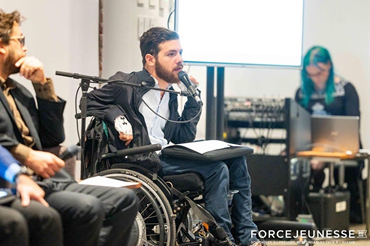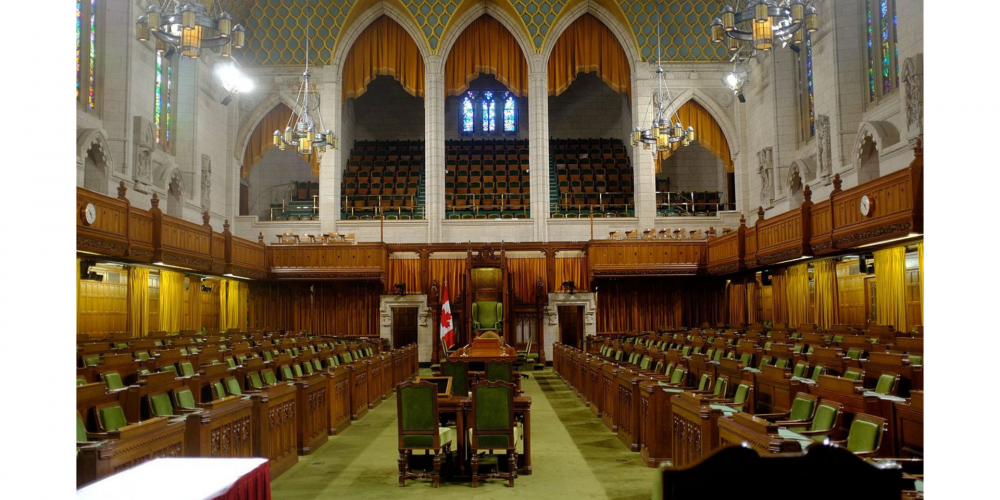The last time I wrote about GreenPAC and environmental politics (see story here), I discussed the relationship between protesting and voting, and how youth engagement in the political sphere would be pivotal in putting environmentally informed politicians in office. To repeat my point just one more time (sorry), if you are going to protest on behalf of the environment now, make sure you get to the polls and vote later. And when I say vote, I mean do your research and become an informed voter! Find the politicians that are making real strides towards environmental progress as opposed to broadcasting feel-good, empty speeches. Find the politicians whose actions and policies back up their words. They are out there, I promise.
While voting is important in placing environmentally conscious political leaders in office, we need to have reliable candidates to vote for in the first place. If your options are between a candidate who approved a pipeline expansion and a candidate who left the Paris climate agreement, one could feel at a loss for a viable choice.
We need solid, environmentally sound options to vote for.
But just like encouraging youth to vote, this side of the coin poses its own challenges. I was recently on a call with a former MP who mentioned that one of the greatest challenges in solving the environmental problems of our time will be ensuring representatives in the House of Parliament are environmentally literate. During her time as MP, she relied heavily on a team of environmental scientists and researchers to ensure that she understood the issues pertaining to the environment as clearly as possible. This is reasonable. An MP cannot be an expert on every topic they are expected to speak and vote on- they are human too! Moreover, many of the individuals who enter politics have backgrounds and degrees in political science or law, and not necessarily environmental sciences.
Fostering environmentally literate MP’s (and their teams!) leads the way to greener, science-based policies and legislation. GreenPAC understands this and have made it their mission to help elect environmentally educated leaders. As mentioned in my previous article, GreenPAC is a non-partisan organization which offers a Parliamentary Internship Program to youth between the ages of 18 to 30. The program places young environmentalists in the offices of host MP’s with proven track records as being environmental champions. For nine months, the interns learn about the inner workings of the federal government through an environmental lens.
This September of 2020, GreenPAC took on four new interns. The interns are positioned with MP’s from different political parties Canada-wide. With diverse backgrounds from agriculture to biology to engineering, the interns are assigned specific projects relating to the environment, as well as assisting their MP’s and the offices in which they work become more environmentally adept.
I wanted to check in to see how they were coming along, and to gain a better sense of what the future MP’s of Canada might look like! Here are a few of their stories…
Zhenglin Liu | Interning with MP Taylor Bachrach | NDP | Skeena—Bulkley Valley, BC

With a background in engineering and economics, Zhenglin Liu joined GreenPAC to gain experience in public service and federal politics with a future goal of a master’s degree, and then perhaps go to law school (wow, I know!).
“I came into the internship hoping to get sort of the vibe as to what environmental politics was like,” he laughed, “I think this internship has definitely been helpful in that. I was not hugely knowledgeable about the details of Parliamentary politics before starting this internship. For example, I didn’t know about the distinction between the work that is done in the House, versus Parliamentary committees, versus MP’s just informally talking to each other.”
Liu has been focussing specifically on issues relevant to his MP’s portfolio (infrastructure and transport), including green recovery policy, high-speed rail, aviation, and the incorporation of climate considerations into infrastructure funding.
Liu has also been researching historical policy with his MP’s office. “I was researching historical approaches to rural telephone connection in the mid-century as an analogy and potential source of best practices and recommendations. That was really interesting because it was something I had never done before; looking into policy that was decades old and trying to draw analogies for the modern day.”
“One thing that has really jumped out to me is how hard leadership (specifically in the political arena) is without knowledge or resources from civil society.” -Zhenglin Liu
“One thing that has really jumped out to me is how hard leadership (specifically in the political arena) is without knowledge or resources from civil society,” says Liu. “For me, working in an opposition party that currently has a small caucus, it can feel like even MP’s with strong environmental convictions (of which Taylor Bachrach is a great example), don’t really have the time, the staff, or the capacity to develop the technical or grassroots expertise stakeholders can provide on specific issues.”
“The experiences I have found most interesting and exciting have been hearing ministers answer questions posed from a progressive environmental perspective, whether that’s in question period or in committee,” he continued, “Through the office, I have had the opportunity to hear from really interesting stakeholders like the Canadian Federation of Municipalities and the Canadian Urban Transit Research & Innovation Consortium (CUTRIC).”
While his educational background has been in electricity systems, he is now learning about transport infrastructure from the perspective of planning, understanding the broader social benefits, and how politics and engineering intersect.
For the remainder of his internship, Liu hopes to learn more about which stakeholders play large roles in influencing policy. “Whether it’s industry leaders in clean tech, civil society, or experts within the civil service – who has the strongest impact?”
Jessie Mayes | Interning with MP Eric Duncan | Conservative | Stormont—Dundas—South Glengarry, ON

“All of this [was] really new to me,” says Jessie Mayes, speaking of her political experience prior to starting the GreenPAC internship. Coming from a background in Agricultural and Environmental Sciences, Mayes knew that she would face a learning curve when it came to navigating the ins and outs of everyday politics. But in the office of MP Eric Duncan, she also had a unique opportunity to work on projects that utilized her passion for agriculture.
“My office has been really great. They wanted to carve out specific environmental projects for me to work on while I’m in the office so they can use my skills, which is wonderful,” says Mayes. During her internship, she has also been conducting research on the impact of the carbon tax on farmers and the ways that farmers can be supported to adopt more sustainable practices.
“I have a much greater appreciation for what can be done at the local level and how big of an impact that can have.” – Jessie Mayes
Before peering behind the curtain of politics, Mayes was often frustrated with the slow speed at which our political system operates. “From the outside, I have been judgemental and perhaps too much so,” she says. “When I was doing more grassroots and local work, I thought, ‘wow, why isn’t this happening?’ Now that I have more experience here, I realize that it isn’t easy on this level either. I have a much greater appreciation for what can be done at the local level and how big of an impact that can have as well.”
In the meantime, Mayes says she is “interested in gaining more experience with policy analysis and how to develop strong policies while also being critical of them.”
Clément Badra | Interning with MP Jenica Atwin | Green Party | Fredericton, NB


GreenPAC intern, Clément Badra, feels he can make the most difference in the world by working in and around politics in the broad sense of the term. “The one sphere where I feel like we are lacking the willingness to take on [environmental issues] is the political sphere,” he says.
“Most of the people that are working in the offices [were] political science students or people with a background in administration. Which is extremely necessary because of the complex structure you are working in…but the more time I spend listening to what is happening, the more it seems the programs are not structured to properly help people working on the ground. There might be a disconnect there.”
“[An MP] cannot be an expert on everything, so you need your team to be experts for you and guide you through this.” – Clément Badra
Badra believes that without diverse backgrounds in the House or on an MP’s staff, “you might miss nuances on specific issues and can’t do the best work possible as an MP because your staff wasn’t able to bring the nuances to the bill… [An MP] cannot be an expert on everything, so you need your team to be experts for you and guide you through this. But diversity should not only be in regards to professional backgrounds represented, but should also include socioeconomic backgrounds as well as racial diversity.”
Badra hopes to learn more about committee work and the various kinds of procedures you can use to push for ideas and projects within the House of Commons. More specifically, “I would like to learn how the committee work translates to the debate in the House and pushing motions and amendments to a bill, the negotiations that happen around a bill when it is put in the House, and how you work to try and get the most out of it.”
In terms of impactful moments during his internship? “I have had some very interesting meetings…you get to understand the partisanship and the non-partisanship sides because some people in other parties do not share the idea of the party themselves,” says Badra. He says that another impactful moment is seeing the positive influence he and his team made on someone they were trying to help, “those are great moments”.
Joshua Swift | Interning with MP Catherine McKenna | Liberal | Ottawa Centre, ON

GreenPAC intern, Joshua Swift, found GreenPAC’s training prior to his internship helpful in preparing him for what was ahead. When asked what kind of training GreenPAC provided prior to the internship, Swift stated, “We had training with the House clerks. We learned how to do research that would probably be required in the office. We also learned about how the different branches of government work… We spoke with many speakers, some of whom having worked on the Hill before, some who had worked around it. We also began working on a GreenPAC related project before actually starting in our offices.”
“I have also gotten the chance to work on some local environmental projects,” says Swift. He has learned about environmental challenges specific to Ottawa including tree planting projects, and phasing out single use plastics, as well as working with local groups and smaller environmental initiatives within the community. “I have also done a lot of following and reporting on meetings for my MP,” says Swift, “I have been following [The Canadian House of Commons Standing Committee on Environment and Sustainable Development] at the federal level, as well as the city of Ottawa and the local sides environmental committees.”
“Climate change is a global issue, and I don’t think there is any better actor situated to be at the forefront and coordinate that approach than the federal government. They have the tools and capacity to make this happen.” – Joshua Swift
While he has a background in environmental policy, the GreenPAC internship is providing him with the skills to put his education to use in the real world. “This experience has strengthened my view that the climate crisis is so big, and in order to meaningfully combat it, we need a multifaceted approach,” says Swift. “Climate change is a global issue, and I don’t think there is any better actor situated to be at the forefront and coordinate that approach than the federal government. They have the tools and capacity to make this happen. This experience so far has just kind of fortified that view.”
When asked what surprised him during his internship so far, he stated, “I knew MP’s and ministers were probably busy, but I didn’t realize the extent to which their schedules are jam-packed! From my experience, everyone here is working extremely hard.”
“I would like to better understand the Parliamentary process,” says Swift, “The federal government is multifaceted, with so many departments, ministries, and checks and balances. The more well-versed I can become in those inner workings, the better prepared I will be to utilize that system to implement some of the many changes we need, especially around the environment…I am just trying to absorb all I can.”
—
Now that I have peeked behind the curtain myself into the work and workings of the GreenPAC interns, I’d say the future is in good hands.













